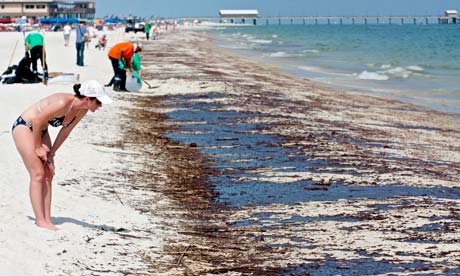Charleston Post and Courier
April 12, 2017
Last year the concerted efforts of local governments, small businesses and grass-roots organizations throughout the Lowcountry convinced the federal government to remove waters off our shores from plans for oil and gas exploration and production. Now the Trump administration is planning to reverse that decision and allow oil drilling in the Atlantic.
We have a choice. We could buy the administration’s and big oil’s hype that if oil and gas development is permitted, money and jobs will pour into South Carolina with no risk to the environment. In truth, the relatively few high-skilled jobs needed for exploratory drilling would mostly be filled by experienced workers from the Gulf of Mexico, and the environmental risks are unacceptable.
Very large oil spills are rare, but when one occurs the consequences are devastating. The 2010 Deepwater Horizon spill in the Gulf of Mexico, which was caused by human error while drilling an exploratory well, dumped over 200 million gallons of oil into the Gulf, smeared over 1,000 miles of shoreline, and killed or seriously harmed hundreds of thousands of birds, fish, marine mammals, and sea turtles. Over 88,500 square miles of federal waters were closed to fishing for up to a year, and the total cost to fisheries could exceed $8 billion by 2020. Ten million user-days of beach, fishing, and boating activity were lost. The damage to marine life and the regional economy will last many decades.
Last January the federal government denied all permit requests for seismic surveys in the Atlantic. But now that the East Coast will be opened to drilling once again, new permits will be issued to conduct these surveys, which help industry identify areas likely to contain oil or gas. Numerous scientific studies have documented that the relentless, round-the-clock airgun blasts from seismic surveys cause severe harm to marine life.
If commercial quantities of oil are discovered during exploration, the Lowcountry will be completely transformed. Oil production infrastructure and activities would come to define the coast. On some days, a slight scent of petroleum would permeate the air, and oil sheens would taint our marshes and waterways. Small but consequential oil spills would be inevitable.
During the 46-year period ending in 2011, there were over 2,800 oil spills related to offshore development, most in the Gulf of Mexico. That’s an average of 61 spills a year. Sometimes we’ll know a spill has occurred because we’ll find dead fish or oiled seabirds along the water’s edge. And we’ll have to routinely clean globs of oil off the soles of our feet after walking on the beach.
That’s what to expect if we give the oil industry a foothold. But we could say no. We could opt to protect our coastal environment and vibrant economy. Oil industry money has a huge influence in state and national politics. But our many voices can be persuasive. Once again we must tell our elected officials that we do not want oil development in our coastal waters.
Richard Wildermann
Johns Island
South Carolina


